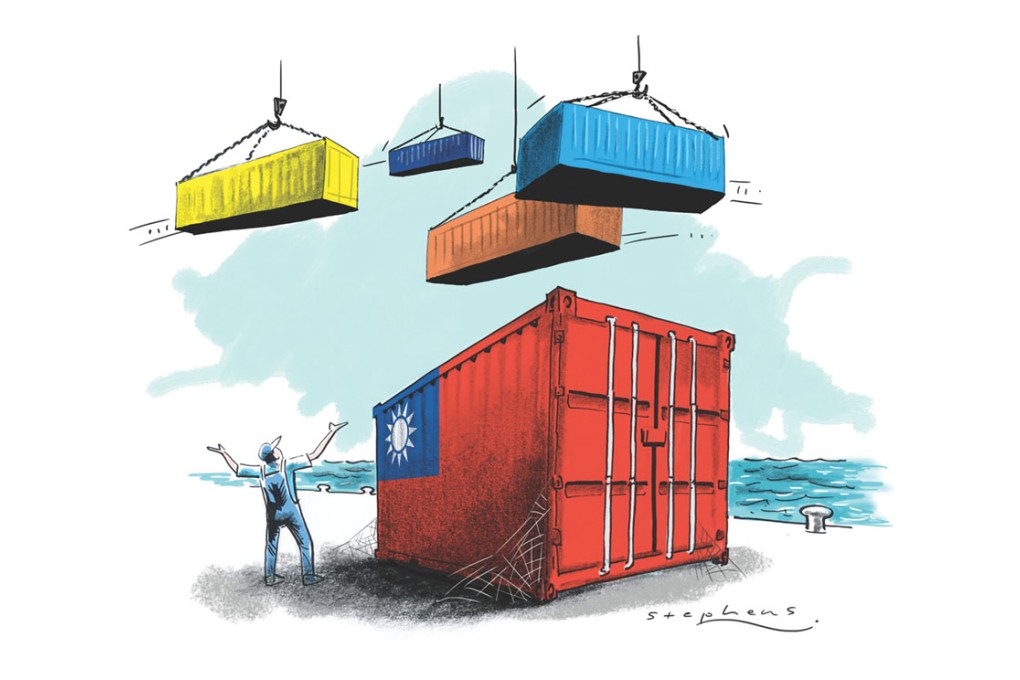Taiwan's trade dilemma amid flurry of regional pacts
Erik Tollefson says the Beijing-Seoul free trade deal sent political shockwaves through Taiwan, raising questions on whether it is too reliant on trade for economic competitiveness

Amid the diplomatic pageantry and sartorial tragedy of the recent Apec conference, a short announcement last Monday set off a figurative earthquake in Taiwan: China and South Korea had signed an outline free-trade agreement. Indeed, although many observers expected the pact would eventually be signed, few foresaw the early arrival date.
In Taiwan, the news catalysed a firestorm of debate: for pessimists, it was yet another sign that the island's figurative economic sky was falling while, for optimists, the agreement underscored the urgency to pass the embattled Cross-Strait Service Trade Agreement to ensure market access.
While China's agreement with South Korea is probably of greater symbolic than practical importance, the proliferation of regional trade agreements excluding Taiwan, coupled with an increasingly stagnant domestic debate on economic competitiveness, threatens its ability to respond.
The outline deal, if it is ultimately approved, will undoubtedly have an impact on some Taiwanese firms. According to Xinhua estimates, it will affect tariffs on a total of 90 per cent of bilateral exports across 17 product categories over the next 20 years. With Taipei estimating that there is a 77 per cent overlap in the trade structure between Taiwan and South Korea, some Taiwanese exports will be affected.
However, the final deal, as with nearly all trade agreements, did fail to meet initial lofty ambitions. The automobile industry, a key economic driver for both countries, was not included in the agreement, and cannot be negotiated for at least two years. Liberalisation of the agricultural sector, one of the most sensitive topics on both sides of the Yellow Sea, was pared back from the original positions. Furthermore, Seoul only won a partial opening of China's prized petrochemical and steel markets, primarily for lower-value-added products, while the higher-end market will remain closed: a strategic decision to protect Chinese domestic producers' fragile finances and move up the value-added ladder. Finally, the IT sector, which has experienced substantial liberalisation already due to the World Trade Organisation's IT agreement, posted additional gains for Korea, including reduced tariffs for e-commerce.
Even with a less comprehensive scope, however, the agreement immediately became politicised in Taiwan. The Ministry of Economic Affairs said the FTA, if ultimately ratified, could dent Taiwan's GDP by up to 0.5 per cent, with Taiwan's exports to China falling by between 2 per cent and 5.4 per cent, to be replaced by rivals from South Korea. The estimates immediately came under attack as a veiled threat to catalyse the stalled cross-strait trade talks. Indeed, some foreign investment banks and analysts offered a more sanguine assessment of the deal's impact on Taiwan and its economic future.